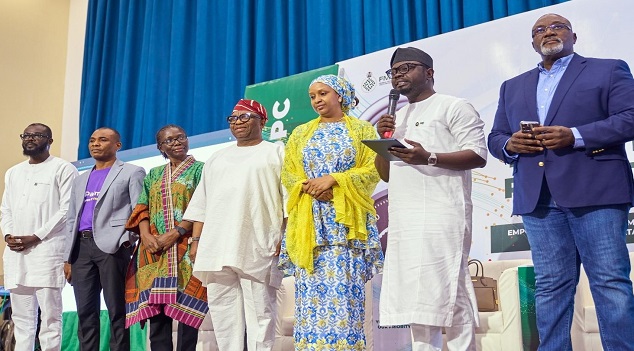News
Kaspersky Report Reveals 25% of Paris Open Wi-Fi Spots for Olympics Unsafe

Kaspersky experts have analysed nearly 25,000 free Wi-Fi spots in Paris prior to the opening of the Summer Olympic Games and Paralympic games.

Their analysis has revealed that almost 25% of these networks had weak or no encryption, making users vulnerable to personal and banking data theft. Just 6% of the networks employ the latest WPA3 security protocol.
The upcoming Paris Olympics, the first in-person summer Games since pandemic restrictions were lifted, are expected to attract thousands of tourists.
Amid the event, Kaspersky’s GReAT (Global Research and Analysis Team) researchers have mapped and assessed the security of the open Wi-Fi networks that visitors might encounter.
The researchers analysed 47,891 signal records across popular locations and Olympic venues* in Paris, identifying 24,766 unique Wi-Fi access points.
They found that a quarter (25%) of these networks had serious security weaknesses, such as weak or nonexistent encryption, making them vulnerable to interception, decryption, or cracking attacks.
Additionally, almost one-in-five (20%) were configured with WPS (Wi-Fi Protected Setup), an outdated and easily compromised algorithm, rendering them highly susceptible to WPS attacks that could result in data loss.
Only six percent of the analysed networks used the latest WPA3 (Wi-Fi Protected Access 3) security protocol.
“Like the sportspeople training for the summer of sport in France, cybercriminals have also prepared an unsavoury welcome for the millions of people heading for Paris hotels, fan zones and events. They might set up fake access points or compromise legitimate networks to intercept and manipulate data transfers.
“Open and misconfigured Wi-Fi networks are particularly attractive to criminals, as they enable the theft of passwords, credit card details, and other sensitive user data,” comments Amin Hasbini, Director of META Research Center, GReAT at Kaspersky.
Using a Virtual Private Network (VPN), such as Kaspersky VPN Secure Connection, provides an extra layer of security for those accessing open Wi-Fi networks. A VPN encrypts the Internet connection, creating a secure tunnel between the device and the Internet.
This encryption prevents cybercriminals from intercepting data, even on unsecured networks. By masking the IP address and encrypting all transmitted data, a VPN ensures that personal and financial information remains protected while using public Wi-Fi.
News
PalmPay Partners FG to Drive Data Protection Awareness

PalmPay reinforced its commitment to data protection and youth empowerment with a ground-breaking partnership with the Federal Ministry of Youth Development to launch the Youth Data Protection Awareness and Training (YDPAT) Program, which is targeted at equipping over 1,000,000 Nigerian youths digitally over 3 years.

The training program, commissioned last week at the Shehu Musa Yar’ Adua Centre in Abuja, will focus on providing youths with the right knowledge and skills required to navigate the digital landscape safely. With over 70% of the Nigerian population consisting of youths, this is an important move to foster trust, security and youth-focused innovation.
Speaking at the launch, the Honourable Minister of Youth Development, Comrade Ayodele Olawande, commended PalmPay’s partnership in the actualisation of the program and described YDPAT as a bold step toward building a digitally literate and security-conscious generation.
In his words, “This is about building a privacy-first generation, one that is inclusive, future-facing, and globally competitive.” He also emphasised the low awareness of the Nigerian Data Protection Act (NDPA), 2023 and the critical shortage of certified Data Protection Officers (DPOs), despite over 500,000 data controllers operating in the country.
This position was equally supported by PalmPay’s Managing Director, Mr Chika Nwosu, who stated how data protection is as important as innovation in tech. He noted that PalmPay integrates privacy into every stage of its product development, ensuring that user information is safe.
Beyond ensuring data protection, PalmPay is committed to empowering young Nigerians with real opportunities for growth, with mentorship and internship placements for top-performing participants. It has led several youth-oriented initiatives, including the Purple Woman campaign, and Passing the Baton CSR for thousands of youths and women in urban and rural communities.
With a drive to achieve nationwide digital literacy, PalmPay is championing campaigns in Northern Nigeria, with more activations planned across various states.
News
FG to Move 5m Homes to Clean Cooking by 2030 — Minister

Ekperikpe Ekpo, minister for State, Petroleum Resources (Gas), said it is working towards a renewed target of moving about five million homes to clean cooking by 2030.

Ekpo, made the declaration while delivering the ministerial address and remarks on Monday at the opening ceremony of the 48th Nigeria Annual International Conference & Exhibition (NAICE) 2025.
This year’s conference is themed ‘Building a Sustainable Energy Future: Leveraging Technology, Supply Chain, Human Resources, and Policy.’
He explained that the target can only be made possible through increased investment in gas infrastructure in critical projects such as the OB3 and AKK pipelines, progressing to deliver gas to markets nationwide; and promoting modular and scalable gas projects, including mini-LNG and CNG stations.
According to him, the government is also ramping up efforts to improve last-mile access and stimulate local economic activity and facilitate job creation through strategic public-private partnerships in the construction, logistics, and retail segments of the gas value chain.
“His Excellency, President Bola Ahmed Tinubu, GCFR, has placed gas at the heart of Nigeria’s energy strategy. His vision, aptly captured in the phrase “From Gas to Prosperity”, reflects our national ambition to utilise our abundant natural gas resources to fuel industrialisation, create jobs, and expand access to clean and affordable energy for all Nigerians.
“Over the past year, we have taken decisive steps in line with this vision. We have expanded gas supply for industrial use, prioritising gas availability for manufacturing hubs, power generation, and industrial corridors. As of today, I’ve been reassured that every gas offtaker currently receives the gas they require for their industrial processes; Rolled out the LPG Penetration Programme, distributing cylinders across the six geopolitical zones and empowering women and youth, promoting clean cooking.
“Under the Decade of Gas Initiative, we are also making meaningful strides to unlock value across the midstream and downstream sectors.
“Notably, we have facilitated the development of gas processing facilities and virtual pipeline systems, ensuring gas reaches off-grid and underserved communities, supported private sector investment in LPG and CNG infrastructure, including autogas stations, domestic cylinder manufacturing, and distribution networks, strengthened coordination via the Decade of Gas Secretariat, driving alignment and accountability across Ministries, Departments, and Agencies, Advanced the Nigerian Gas Flare Commercialisation Programme (NGFCP), converting waste to wealth while supporting environmental goals, secured presidential approvals to address legacy debts, incentivising upstream gas supply and stabilising the domestic market”, he said.
He also said the federal government has released much-needed financial support to project promoters via the Midstream Downstream Gas Infrastructure Fund (MDGIF).
“All these efforts are anchored on a single, resolute belief, which is that Nigeria’s gas must work for Nigerians, not just as an export commodity, but as a foundation for inclusive growth, national development, and energy security.”
Speaking on the four pillars highlighted in the conference theme – technology, supply chain, human resources, and policy –- the Minister noted that each plays a vital role in shaping Nigeria’s energy future.
On technology, he said the adoption of digital solutions, automation, and data-driven tools across the gas value chain is essential.
“From reservoir monitoring to distribution analytics, emerging technologies can enhance efficiency, reduce emissions, and optimise delivery. The Ministry continues to collaborate with industry players to foster digital innovation,” he said.
He explained that a strong local supply chain is essential to sustaining the gas economy.
“Through the Nigerian Content Development and Monitoring Board (NCDMB), we are driving localisation of equipment manufacturing, pipe production, and other critical components to reduce import dependence and build national resilience.
“Our human capital remains our greatest asset. We are committed to nurturing a technically sound, diverse, and future-ready workforce through continuous training, strategic academic-industry partnerships, and deliberate youth and gender inclusion policies in the gas space.
“The Petroleum Industry Act (PIA) has provided a solid regulatory and fiscal foundation. We are implementing market-reflective gas pricing frameworks, encouraging deepwater gas development, and enforcing domestic supply obligations to drive investor confidence and sector expansion,” he noted.
News
Experts Caution e-commerce Operators on Eco-friendly Materials

Experts have urged the Nigerian e-commerce industry to use eco-friendly materials in its packaging and logistics of products to reduce carbon emissions and protect the environment.

The experts made this known at a sensitisation workshop on Greening E-commerce orgainsed by The Sustainable and Inclusive Economic Development for Decent Employment In Nigeria Programme (SEDIN) – an initiative of the German Development Agency (GIZ) in partnership with Nigerian Postal Services (NIPOST).
The experts stressed the importance of e-commerce operators in Nigeria committing to concrete climate actions and sustainable operations.
Nnaemeka Ngwu, director of the public sector initiative and a professor at Lagos Business School, urged e-commerce companies to quickly adopt sustainable green technology to minimize their environmental harm.
“E-commerce is a business enabler and a platform through which many people can get involved in trade and commerce. However, e-commerce also brings lots of issues in sustainability and climate change because of pollution,” he said.
According to him, to improve the sustainability component of e-commerce, the country must promote better packaging and logistics among operators.
“We need to green the e-commerce industry to make it more inclusive and support the climate so that it does not cause risks and issues,” he explained.
He commended the Lagos State government on the ban on single-use plastics, calling for the policy to be complemented with awareness, advocacy, and engagement so that the public understands the reason for the policy.
He noted that such awareness should be done regularly, while urging the Nigerian Postal Service to use its leadership role in the courier industry to engage other courier businesses within the space on the benefits of sustainability and the packaging and logistics issues.
In her opening remarks, Titi Oshodi, special adviser to the Lagos State Governor on Climate Change and Circular Economy, called for awareness on greening across various sectors of governance, communities and the private sector
“This will ensure that people understand the rationale behind the policies on greening and they also understand what the alternatives are,” she noted.
“This is the reason why climate literacy is a front-boner strategy for us in Lagos State,” she added.
She explained that Lagos is a commercial hub that grew its GDP due to the operations of micro, small and medium-size businesses. “We need to have them empowered, more knowledgeable about sustainability practices.”
Tola Odeyemi, postmaster-general, Nigerian Postal Services (NIPOST), said the courier can play a strategic and vital role in greening the ecosystem, noting that it has 1,174 post offices nationwide.
Odeyemi, who was represented by Ernest Mamood, general-manager of EMS Parcel Nigeria, said NIPOST is a regulator in the country’s courier industry and can use its position to sensitize other operators in the industry on the use of eco-friendly materials in packaging and logistics to cut environmental impact.

 General News3 days ago
General News3 days agoNOA Warns of Fake N1000 Notes in Circulation, How to Identify Them

 Telecom3 days ago
Telecom3 days agoMTN @ First-ever CED, Pledges to Address Subscribers’ Concerns

 E-Financial3 days ago
E-Financial3 days agoWest Africa Emerging as Crypto Adoption Epicentre- SEC Boss

 Telecom2 days ago
Telecom2 days agoNCC to Sanction Operators over Regulatory Violations

 General News2 days ago
General News2 days agoCustoms Ditches Fast Track Scheme for Authorised Economic Operator

 General News3 days ago
General News3 days agoNCC, IHS Towers Lead Others To NITRA-ALTON CNII & Telecom Sustainability Conference 2025

 Telecom3 days ago
Telecom3 days agoAirtel Nigeria Raises Infrastructure Spending to $39m

 Broadcasting3 days ago
Broadcasting3 days agoGovernment of Ghana Slams MultiChoice, Insists on DStv Price Cut


























